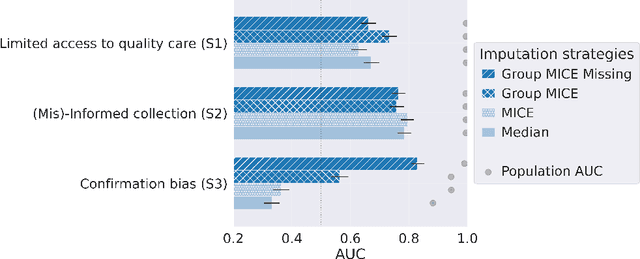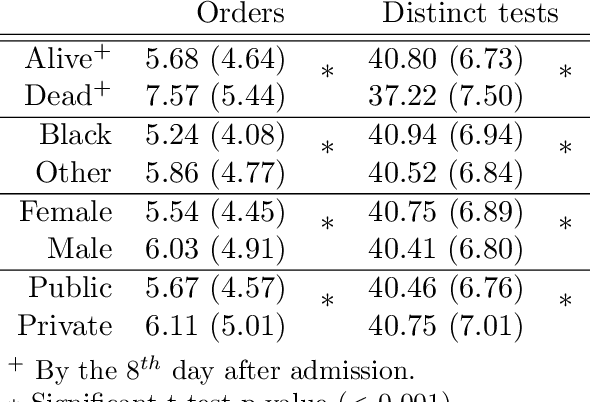Imputation Strategies Under Clinical Presence: Impact on Algorithmic Fairness
Paper and Code
Aug 13, 2022



Biases have marked medical history, leading to unequal care affecting marginalised groups. The patterns of missingness in observational data often reflect these group discrepancies, but the algorithmic fairness implications of group-specific missingness are not well understood. Despite its potential impact, imputation is too often a forgotten preprocessing step. At best, practitioners guide imputation choice by optimising overall performance, ignoring how this preprocessing can reinforce inequities. Our work questions this choice by studying how imputation affects downstream algorithmic fairness. First, we provide a structured view of the relationship between clinical presence mechanisms and group-specific missingness patterns. Then, through simulations and real-world experiments, we demonstrate that the imputation choice influences marginalised group performance and that no imputation strategy consistently reduces disparities. Importantly, our results show that current practices may endanger health equity as similarly performing imputation strategies at the population level can affect marginalised groups in different ways. Finally, we propose recommendations for mitigating inequity stemming from a neglected step of the machine learning pipeline.
 Add to Chrome
Add to Chrome Add to Firefox
Add to Firefox Add to Edge
Add to Edge